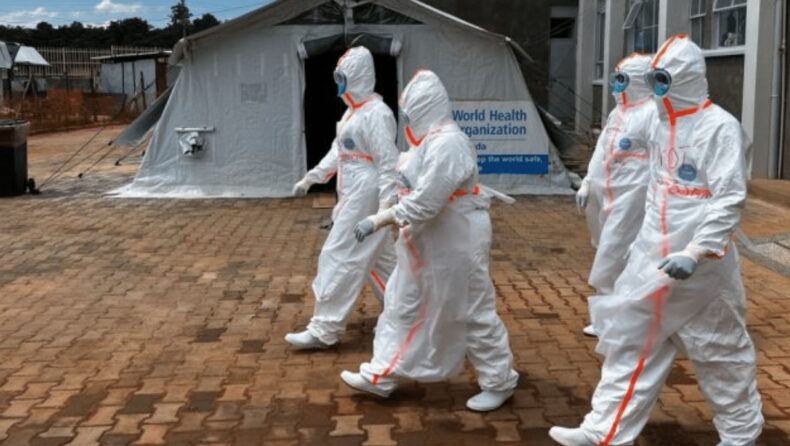After four months of a deadly outbreak, Uganda declared itself Ebola-free on Wednesday. The country struggled to contain the spread initially but later swiftly brought it into control. There were 55 fatalities out of the 143 people who were infected according to the health ministry’s data. Out of the people who died, six were health workers.
This was the country’s first Sudan ebolavirus outbreak and the country’s eighth since the first outbreak in 2000. The Sudan ebolavirus is one of the six species against which no therapeutics and vaccines have been approved yet. But, Uganda’s long experience in responding to epidemics helped it to strengthen critical areas of response and control the spread.

Image source: Abubaker Lubowa
“Uganda put a swift end to the Ebola outbreak by ramping up key control measures such as surveillance, contact tracing, and infection, prevention and control. While we expanded our efforts to put a strong response in place across the nine affected districts, the magic bullet has been our communities who understood the importance of doing what was needed to end the outbreak, and took action,” said Dr. Jane Ruth Aceng Ocero, Uganda’s Minister of Health.
The first case was confirmed in the country’s central Mubende district on 20th September 2022. Initially, the cases spread from the epicenter to several other districts, including Kampala, the capital. A two-week delay in declaring the outbreak after the first probable death meant that the opportunity to quarantine the contacts was lost according to Uganda’s President, Yoweri Museveni. There were restrictions in place on movement in the hotspot areas in Mubende and Kasanda. Health authorities successfully controlled the disease by the end of November 2022 and by December, the restrictions were lifted.

Ebola Virus spreads through contact with the bodily fluids of an infected person and has a fatality rate of 50%. More than 11,300 people died in West Africa during the 2013-16 outbreak. African authorities have made significant efforts in being ready to respond to an outbreak.
Uganda Declared itself Ebola Free
According to WHO, a country can be Ebola-free after it passes 42 days (twice the maximum incubation period) without active cases. Uganda’s declaration followed after the completion of this timeline. Health authorities are maintaining surveillance in the region to respond to any flare-ups.
Director of WHO, Tedros Adhanom Ghebreyesus, praised Uganda for its efficient response to the outbreak. “Uganda has shown that Ebola can be defeated when the whole system works together, from having an alert system in place, to finding and caring for people affected and their contacts, to gaining the full participation of affected communities in the response,” he said in a statement.













